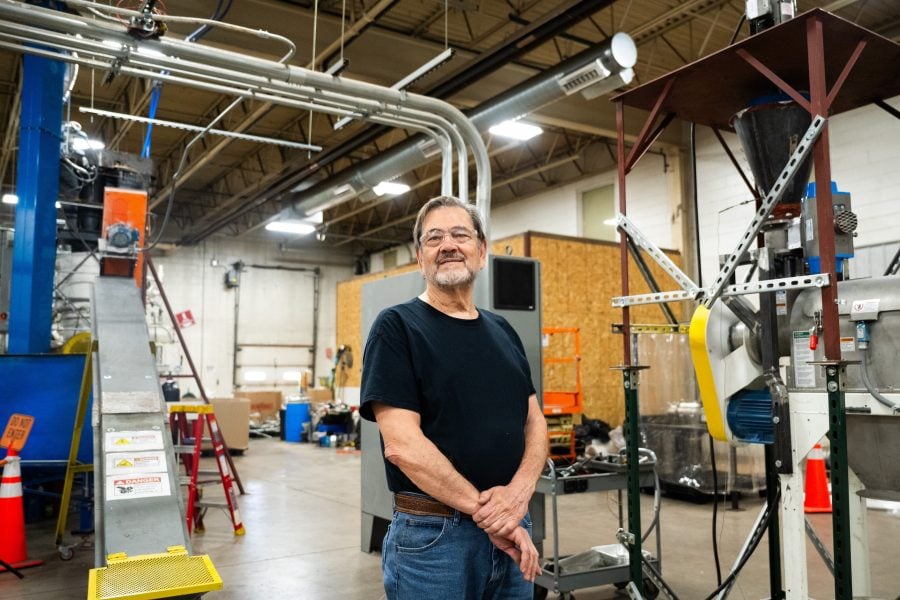
From shoes to pen caps to meat wrappers—90 percent of plastics end up in the trash. Michigan Tech Professor Ezra Bar-Ziv and his research team have joined a multi-university regional effort to do something about it. They’re hard at work scaling up a process development unit that will prove the commercial viability of STRAP: solvent targeted recovery and precipitation.
STRAP targets plastics that cannot be recycled because they’re contaminated—with other plastics, dyes or inks, fillers, and other materials. Developed at the University of Wisconsin-Madison under the direction of George Huber, Richard L. Antoine Professor in the Department of Chemical and Biological Engineering, STRAP can restore contaminated plastics, including food-grade materials, to their original state for reuse. Some restored plastics, especially multilayer films, are expensive to produce and will be valuable once recovered.
“There is a lot of value in plastic waste. Money is thrown away in the form of plastic each day.”
A mechanical engineering professor with a PhD in Chemical Physics, Bar- Ziv joined forces with Huber after recognizing common interests in their published research. Now, they network globally with others focused on plastic recycling—and this past year, they jointly raised over $10 million for STRAP research.
Bar-Ziv has received over $7.4 million in federal, state, and private funding, including $549,953 from the National Science Foundation; $320,685 from the Michigan Department of Environment, Great Lakes, and Energy; and $4.25 million from the US Department of Energy. Other donors include Batelle/INL ($399,314), REMADE ($600K) and others, including from Sabic and Convergen Energy. An additional $2.995 million US Department of Energy grant is also pending.
STRAP’s test process development unit (PDU) was designed and built at Michigan Tech. It produces 55 pounds per hour of recycled resins from flexible and rigid plastics found in municipal waste. A much larger PDU, about two stories tall, is under construction. “We’re going from a lab scale, all the way to a ton per hour,” said Bar-Ziv. When the PDU is functional and approved, it will anchor the first commercial plastic recycling system in Wisconsin’s Green Bay area, operated by Convergen Energy, with plastics coming from local municipal solid waste. “That’s what we’re trying to do at Michigan Tech, and we are doing it in strong collaboration with the Madison crew,” said Bar-Ziv, who’s aware of only three entities in the world able to recycle plastic at plant scale.
The effort is all-consuming, but the long hours bring Bar-Ziv great joy. “I can’t wait to get to work each day,” he said. Decades of teaching and research culminate in this project—and others aimed at recycling municipal waste to develop clean, renewable energy.
Read More
Chemical Upcycling of Waste Plastics (CUWP), a multi-university center funded by the Department of Energy